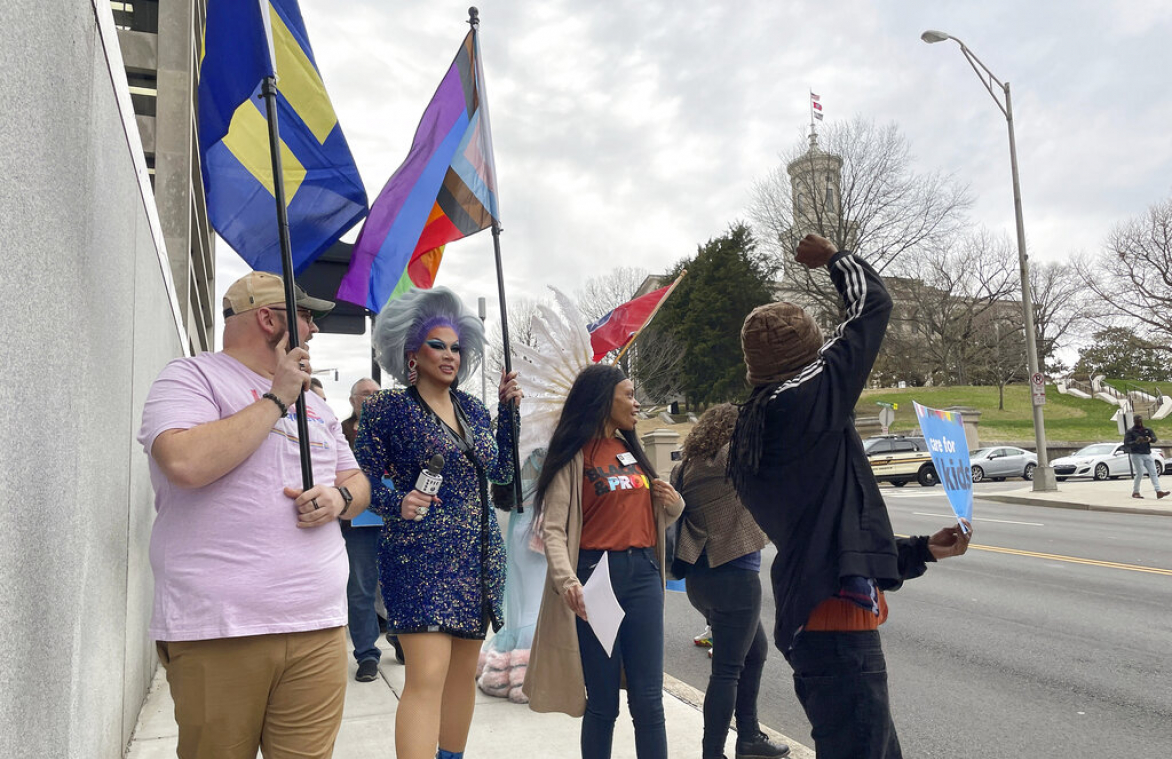“The law prohibits a drag performer wearing a crop top and mini skirt from dancing where minors might see it, but does not prohibit a Tennessee Titans cheerleader wearing an identical outfit from performing the exact same dance in front of children,” the initial complaint contends.
The judge said that a regulation that prohibits obscenity performed by some entertainers like topless dancers, strippers, male or female impersonators but not others could be a content-based regulation that warrants strict scrutiny. Strict scrutiny is the highest level of judicial review in evaluating whether it violates First Amendment rights
Would law ban drag performance in private residence? judge asks
Parker also listed concerns aligning with the group’s argument that the law was overly broad, questioning the location specifications of a cabaret entertainment venue that might be viewed by a minor.
“Does a citizen’s private residence count? How about a camping ground at a national park?” Parker wrote. “Ultimately, the Statute’s broad language clashes with the First Amendment’s tight constraints.”
The complaint also details the efforts last year to block a drag show at a park in Jackson, west of Nashville, as part of a Pride festival. A legal complaint spearheaded by Republican state Rep. Chris Todd and Republican state Sen. Ed Jackson sought to prevent the show, forcing organizers to reach a settlement to hold the event indoors with an age restriction.
“After abusing the state courts to violate the First Amendment rights of Jackson Pride, Rep. Todd ‘was asked to come up with legislation that would make this much more clear’ — that drag performances in front of children are a violation of Tennessee law,” the complaint argues.
Judge questions drag law purpose given state’s current obscenity laws
Parker referenced Todd’s actions in his Friday decision, saying the state attorney general’s office failed to give a clear answer on the purpose of the new law given Tennessee’s current obscenity laws.
“When the Court asked exactly what conduct this Statute reaches that is outside the scope of Tennessee’s obscenity laws, Defendant initially answered that the Statute adds very little, and later clarified that in their view, the Statute is a time, place, and manner restriction. But this answer raises more questions for the Court as it does little to advance Defendant’s position. So this brings the Court to the second way for a law to be considered a content-based regulation: that is, a facially content-neutral regulation adopted by the government “because of disagreement with the message [the speech] conveys.” Ward, 491 U.S. at 791.” the ruling said.
During Thursday’s hearing, Mulroy told the judge that he didn’t object to a temporary restraining order.
“There has been much concern and confusion about the law from the community,” Mulroy said in a statement to The Associated Press. “This will allow the court to clarify the scope, application, and constitutionality of the statute. It’s important to understand the scope of this law so that it doesn’t have a harmful effect on constitutionally protected expression.”
A spokesperson for the attorney general’s office did not immediately reply to a request for comment on Friday.
Lee has faced criticism for approving the anti-drag show law, particularly since a photo surfaced of him as a high school senior dressed in women’s clothing in 1977.
Lee called comparing the two issues “ridiculous.” When asked for specific examples of inappropriate drag shows taking place in front of children, Lee did not cite any, but said he was concerned about protecting children.
This year, legislators in at least 10 states introduced bills to restrict, in a host of ways, drag shows, raising First Amendment questions.

